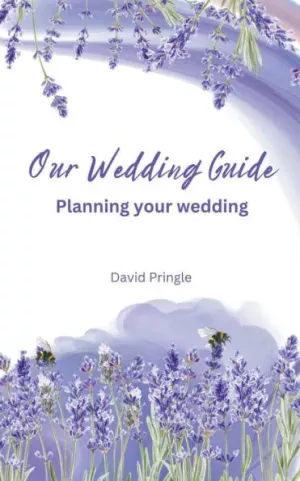If you click on the links we provide, we may receive compensation.
Communicating about Your Wedding Plans
Communicating about your wedding plans sets the tone for your entire wedding experience
Communicating about your wedding plans with your partner sets the tone not only for your wedding, but also for your relationship long after your wedding day. You want your wedding day to be more than an event. Your special day should be an experience foundational to how you build your relationship together, and long to be remembered and cherished.
There are so many decisions to be made and things to get done in planning a wedding. A well thought through wedding plan will reflect your personality and relationship in every aspect of the wedding from the wedding invitations, decorations, music, toasts and tributes, right through to the threshold of the honeymoon. That is why you and your partner need to be together in making every decision. Your wedding is a reflection of each of you, and both of you collectively.

Being together, or aligned, in communicating about your wedding plans does not necessarily mean total agreement. Being together in decision making means that you have shared ideas, listened to one another, and come to mutual consensus. Consensus is about accepting the decision of the other willingly and without remorse. It does not mean total agreement. Consensus means you have made a decision to put aside your own wishes, and move forward. The foundation of consensus building and decision making is effective communication.
The best part of planning your wedding together is discovery. It is the process of revealing and nurturing your growing relationship. Communication is the tool to help you discover the gifts that you each possess, and give you more reasons to fall in love over and over again. Use communication to build your relationship.
Communicating about your wedding plans: Helpful tips
Talk to your partner
When: As soon as you are engaged. Better yet, before.

In communicating about Your wedding plans with your partner it is critical to listen to each other’s ideas in a way that the other feels heard.
Determine together how decisions will be made. Allow for differences in your personalities. Some partners may want to have a large part in making decisions. Others are comfortable with whatever you decide. Some will want to be informed. Others will not want to know about all of the details, just the big picture. We are all individuals and conversations and expectations need to be tailored toward what is meaningful to the other person. One member of the partnership may be more passionate about some aspects of the planning, and the other member may have different priorities. Capitalize on your differing interests, passions and strengths. So long as neither of you feels left you, you will both be able to move forward together.

Who of your family and friends will want to have input solicited or otherwise? Know that anxiety about losing control will happen. Talk about it with your partner. Develop the confidence of knowing that you and your partner are the decision makers and in charge. This will help you relax, be nonreactive when you hear conflicting opinions, and enable you to calmly and confidently move toward your goal of creating the perfect wedding experience.
Keep all of your relationships with family and friends open and intact from your perspective. If anyone is upset with your choices, that is not your problem. But it is your responsibility to listen to them, to be kind, and to give yourself time. Nothing needs to be decided on the spot. Over time things will work out and the drama of those critical decisions and interactions will fade. This will be especially true if you continue to stay positive, and acknowledge and be genuinely grateful for the good intentions of others. At the right time, share your decisions. Then gently move forward as you wish.
5 Things to consider to make communicating about your wedding plans with your partner more effective
1. Pick a time and place. In real estate they say the three most important factors are, location, location, location. In having a meaningful and important conversation the three most important factors might be timing, location, and being emotionally grounded. Find a time and place when you are:
- feeling relaxed
- free of time restriction
- unlikely to be interrupted
- able to be free of mobile phone and other electronic distractions

2. Think through the purpose of the conversation in advance, and determine how you might open the dialogue. Are you wanting to vent and share your feelings, do you want your partner to be more engaged in a process or decision, or do you want a specific outcome or decision? The following examples state the issue up front, do not make assumptions, invite open dialogue, and create a sense of mutuality in decision making. Examples include:
- I was thinking about the wedding reception and wondered if you had given any thoughts about the seating arrangement for a few of our special guests.
- You have been very generous about some of the things that are expensive in planning our wedding. There is something that I would very much like to include and wonder if there are other areas where we could trim some of the costs in order to stay within our budget.
- I wanted to share with you some things that your mom has her heart set on regarding our wedding plans. I am hoping that you and I can come up with what we think is reasonable, and together share with her our thoughts. It may be that she will be disappointed so we need to consider how best to approach this together.
3. Be aware of your partner’s nonverbal cues. Nonverbal cues will give you an idea of how the conversation is impacting your partner. By paying attention to these cues you can pace the conversation, give opportunity for your partner to share what he/she is feeling, and ask deeper questions to determine how the conversation can progress.

4. Resist the temptation to make assumptions about how your partner will react to information and discussions that might be sensitive. This will manage your own anxiety. Stress is transferable. If you are anxious, your partner may pick up on this which will in turn create increased anxiety for both of you. Try not to make more of the words that are exchanged. Take things at face value.
5. Listen more than talk. Communicating with your partner about your wedding plans will be so much more meaningful if you let the other person talk. They will feel heard. It is up to you to manage the conversation. If you are patient, take your time and are relaxed, you will be able to bring the conversation to an outcome that is much more in keeping with your goal. Your partner will feel like a partner, as well as a participant.
Wise words from wise people
Over the years I have had the privilege of knowing a few very wise people. Regarding communication and relationship, the following are three critical things they shared with me. These wise words will be useful in communicating with your partner about your wedding plans.
1. If you speak once or twice during a critical conversation, you will be heard. If you constantly talk and say the same thing over and over again, you will diminish your opportunity to be truly heard.
2. Speak into the listening of the other person. In other words, say things in a way in which the other person can hear you. Speaking to be understood requires you to listen to your own words before they come out of your mouth. Ask yourself, am I being clear? Have I stated my point succinctly? Am I speaking slowly and calming to enable the other person to absorb and process the point that I am trying to make.
3. Bring out new points that are directly related to the outcome that you want. Avoid repeating the same argument over and over again. Avoid just speaking louder and with more emotion. This does not bring anything of value to the conversation but only emphasizes that you are not listening to the other person. You are only becoming more emphatic about YOUR position. Using your intelligence, sharing your wisdom, exercising your creativity, and basing your position on common sense and practicality will be helpful in bringing out the value of your point of view.
4. Allow time. Communicating with your partner about decision that need to be made is a process. Unless it is a crisis situation where immediate action is needed, nothing needs to be decided “right now.” Share at the beginning that you are not expecting a decision right now, but rather presenting some thoughts for consideration. Try to keep the conversation open to allow time for the other person to consider what you have said. Change takes time, and a change in perspective will evolve. After a day or two, come back to the question and ask your partner, “Have you given any more thought to . . . . “
5. Be kind. Your relationship is more important than a single decision. Be willing to give and take. You are setting the patterns that will follow you through the initial months and years of your marriage.




